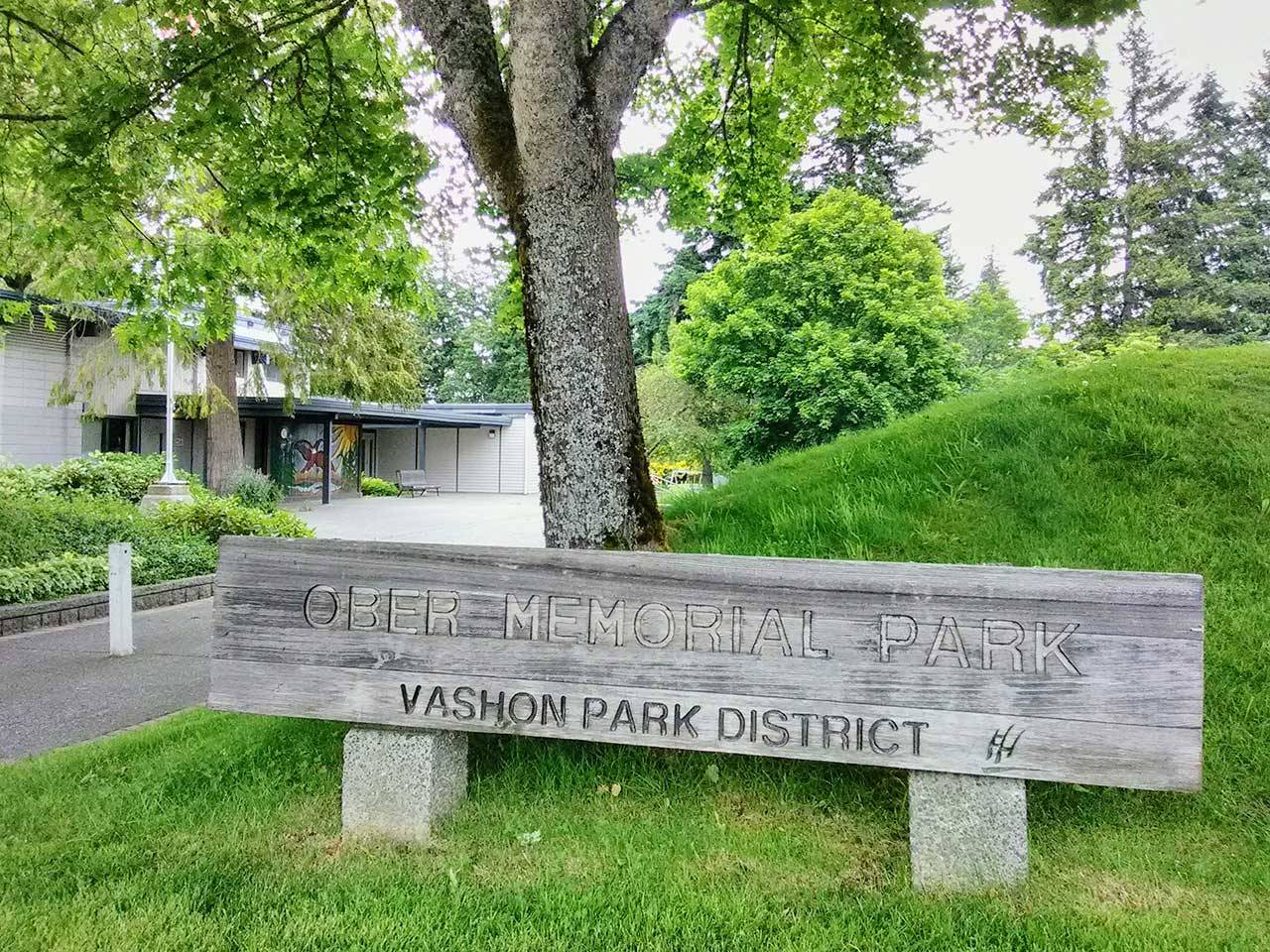Responding to the island’s rejection of the Vashon Park District’s Operations and Maintenance levy in April, commissioners voted unanimously last week to revise the $1.3 million spending plan they had originally budgeted for fiscal year 2019.
The district cut half of the $100,000 that was committed to the expansion of recreation programming this year. Commissioners also voted to forgo a second top-dressing at VES Fields and to put off the purchase of a trailer and two new maintenance trucks.
In addition, no temporary personnel will be hired to help steward the parks this summer alongside full-time staff.
Altogether, the new reductions amount to roughly $174,000 in savings.
Executive Director Elaine Ott-Rocheford said that current services will not be affected by the change. She added that the savings will fund the district’s reserves and help to keep basic administrative functions going through 2020 should the district fail to pass a levy in November.
“We continue to welcome community input on our plans going forward,” she said in a phone conversation. “We welcome comments and concerns from anybody — however they voted on the levy. We’re always interested in community input as we work through decisions on the levy rate in November and establish priorities that are important to the community.”
According to Ott-Rocheford, the district would be unable to function without passing a levy later this year. Those funds cover the cost of most operating expenses.
In spite of limited funds, the district has given priority to a number of tasks to complete this year and kept them in the updated budget. Those include the purchase of new mowers, modifications to the Point Robinson lighthouse, and expenses related to the design of the new Ober Park playground concept by architecture firm MacLeod Reckord. Input for that design was provided from a planning committee consisting of Ott-Rocheford, commissioner Karen Gardner, board chair Bob McMahon, architect and former park district board member Bob Horsley, Susie Calhoun of the Vashon Senior Center and Lee Kopines of Seeds 4 Success. The project was awarded a grant by King County earlier last month.
Meanwhile, district commissioners have begun weighing the possibility of floating a bond to voters in 2021 to complete other capital projects, namely renovations to the aging community pool. Those were set to begin in 2022 at the cost of $1 million, according to the district’s strategic plan, though Ott-Rocheford has said she is looking for county and state grants to help offset the cost.
As November approaches, discussions about renewing the current 41 cent levy have won favor with a majority of the board and district staff. They say the rate would have largely no effect on property taxes and will likely resonate the most with tax-weary islanders.
A final decision on the next four-year levy for the district has not been made yet.
At the May 28 meeting, Ott-Rocheford prepared scenarios of the district’s budget under different levies and shared them with commissioners. In each, there is no likely path forward for the continuation of a plan to raise district staff wages, which were first implemented in June of last year. That plan resulted in the abrupt resignation of former commissioner Scott Harvey, who was also critical of the district’s 52 cent levy run.
In a letter to commissioners shared last month, Harvey wrote that he believes 45 cents would fund all capital improvement projects the district has to complete and said he would support a campaign to raise the rate to that level.
But at recent board meetings, commissioners have expressed concern over all of their options in deciding what to put before voters.
“I understand the psychology behind 41 [cents], but from the comments we’re getting, I don’t know if it makes much difference how much we ask for. People are saying no to property taxes, period,” said McMahon at a recent meeting.
In a later phone conversation, he said the board made the cuts based on carefully assessed needs. But he added that most of the capital improvement projects outlined in the districts’ strategic plan cannot go neglected for long.
“We certainly aren’t planning on the next version of the levy to fail at the end of 2019, but we want to be smart about it, and we just want to make sure if everything went bad, then we could keep things going into 2020,” he said.
“I think the suggestions that [Ott-Rocheford] made, make sense, and that’s why [the board] approved them,” he said.



